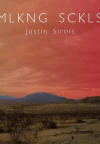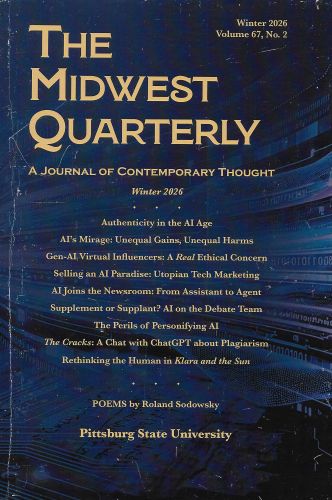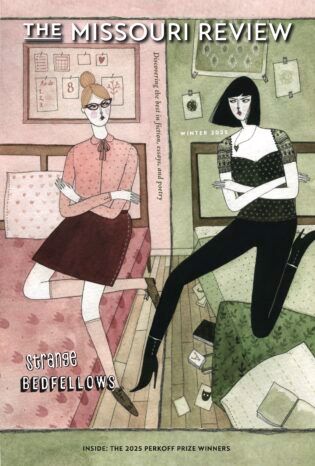Excerpted from the novel Falcons on the Floor, Justin Sirois’s MLKNG SCKLS is ostensibly the story of a road trip across a war-torn landscape. Actually, these aren’t excerpts but excised texts, deleted Word documents from narrator Salim Abid’s laptop intended for the novel Abid wrote while escaping from Fallujah to Ramadi with his friend Khalil. Salim’s epistolary accounts are composed on his laptop and are sectioned off by how much remaining battery power his laptop has. It’s a striking metafictional device that evocatively suggests that time may also be literally running out for Salim and Khalil. As Salim’s laptop’s battery power percentage decreases, the characters’ uncertainty increases. At any moment, you think that Salim will get the pop-up balloon saying: “Low Battery: You should change your battery or switch to outlet power immediately to keep from losing your work.”
Excerpted from the novel Falcons on the Floor, Justin Sirois’s MLKNG SCKLS is ostensibly the story of a road trip across a war-torn landscape. Actually, these aren’t excerpts but excised texts, deleted Word documents from narrator Salim Abid’s laptop intended for the novel Abid wrote while escaping from Fallujah to Ramadi with his friend Khalil. Salim’s epistolary accounts are composed on his laptop and are sectioned off by how much remaining battery power his laptop has. It’s a striking metafictional device that evocatively suggests that time may also be literally running out for Salim and Khalil. As Salim’s laptop’s battery power percentage decreases, the characters’ uncertainty increases. At any moment, you think that Salim will get the pop-up balloon saying: “Low Battery: You should change your battery or switch to outlet power immediately to keep from losing your work.”
And, in another symbolic turn, with only “44% Battery Power Remaining,” Salim describes a tender moment where he cooks and then “uncooks” a meal for his beloved. Why? “To show Rana how much I love her, I’d uncook an entire meal, the whole thing, just for her. Anyone can cook, but uncooking – that’s hard. That’s really hard. But it’d be so worth it.” It’s one of this short book’s many imaginative moments and may reveal Salim’s unconscious desire to turn back the clock, to somehow undo what was done to him, his family, his community.
And what exactly was done? Other than mentioning that these entries were written in April, 2004, while fleeing from Fallujah, nothing else is explicitly written. Salim and Khalil’s escape from Fallujah was presumably precipitated by the First Battle of Fallujah, codenamed “Operation Vigilant Resolve,” the U.S. Military’s disastrous attempt to capture the city of Fallujah in April, 2004. While 27 American soldiers were killed, hundreds of Iraqis including many civilians were killed in the offensive. It was later reported that the U.S. Military was guilty of using incendiary devices like napalm and white phosphorus in their offensive. Perhaps this is what Salim was referring to when he wrote “Now black skies burp fire and the water boils poisonous.”
While its rendering of fear and uncertainty is precisely and captivatingly drawn, MLKNG SCKLS opens up into much more. Lyrical evocations of loss abound as do reveries on desert life:
Windless as an aquarium, the night stretches itself from rim to rim with no beginning or quit. Forward past the darkened shoreline, beyond scrub brush and burr, the horizon is replaced by the river and only the river. North to south, it feeds the desert. Black water inks seaward across the prairie. The outstretched wingspan of water is endless with tributaries feathered into marshland. No one rides or floats. All night the water’s calm. The glassy black flows placid and quiet, and I stare hoping no one comes. No one has and no one will. Across the calm, at the river’s edge, palm trees and poplars poke the sky like crude weaponry.
Sirois’s prose glistens with precision. Its sparseness mirrors the parched desert through which Salim and Khalil travel, its lyricism one proof of how resilient we can be in the face of disaster. Clocking in at fifty-five pages, this novelette manages to pack dreamy reveries, juvenile taunts, gorgeous descriptions of landscape, gothic depictions of vultures circling, lapidary views of blood, and doses of humor (like Khalil’s tall tale about a man with a crippled hand whose life was saved by a cigarette) that spell the reader through a harrowing trip to a place that’s, with any luck, safe, or, at least safer. If MLKNG SCKLS’s excised texts are any indication of the quality of Falcons on the Floor, then, as readers, we have much to look forward to.





